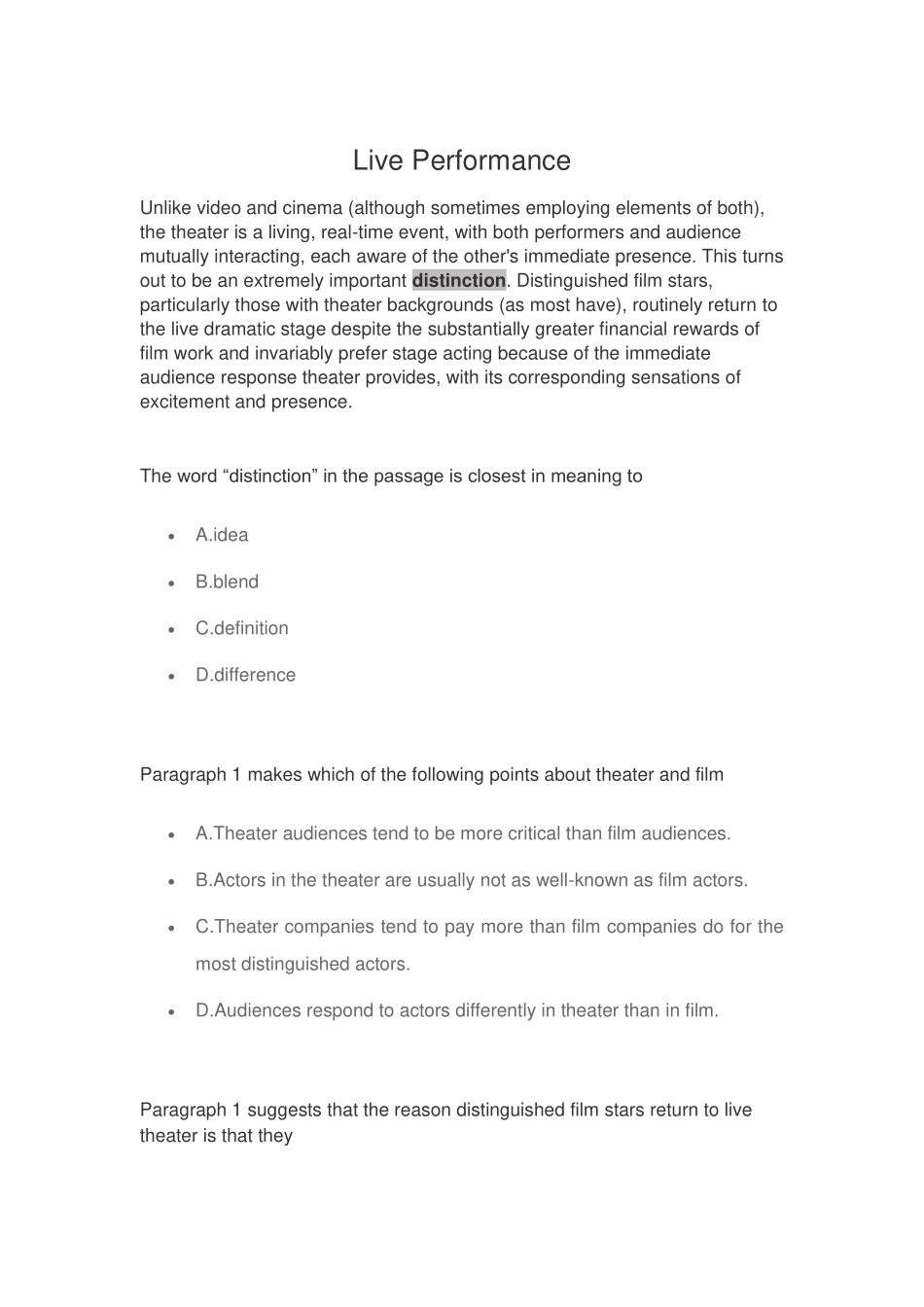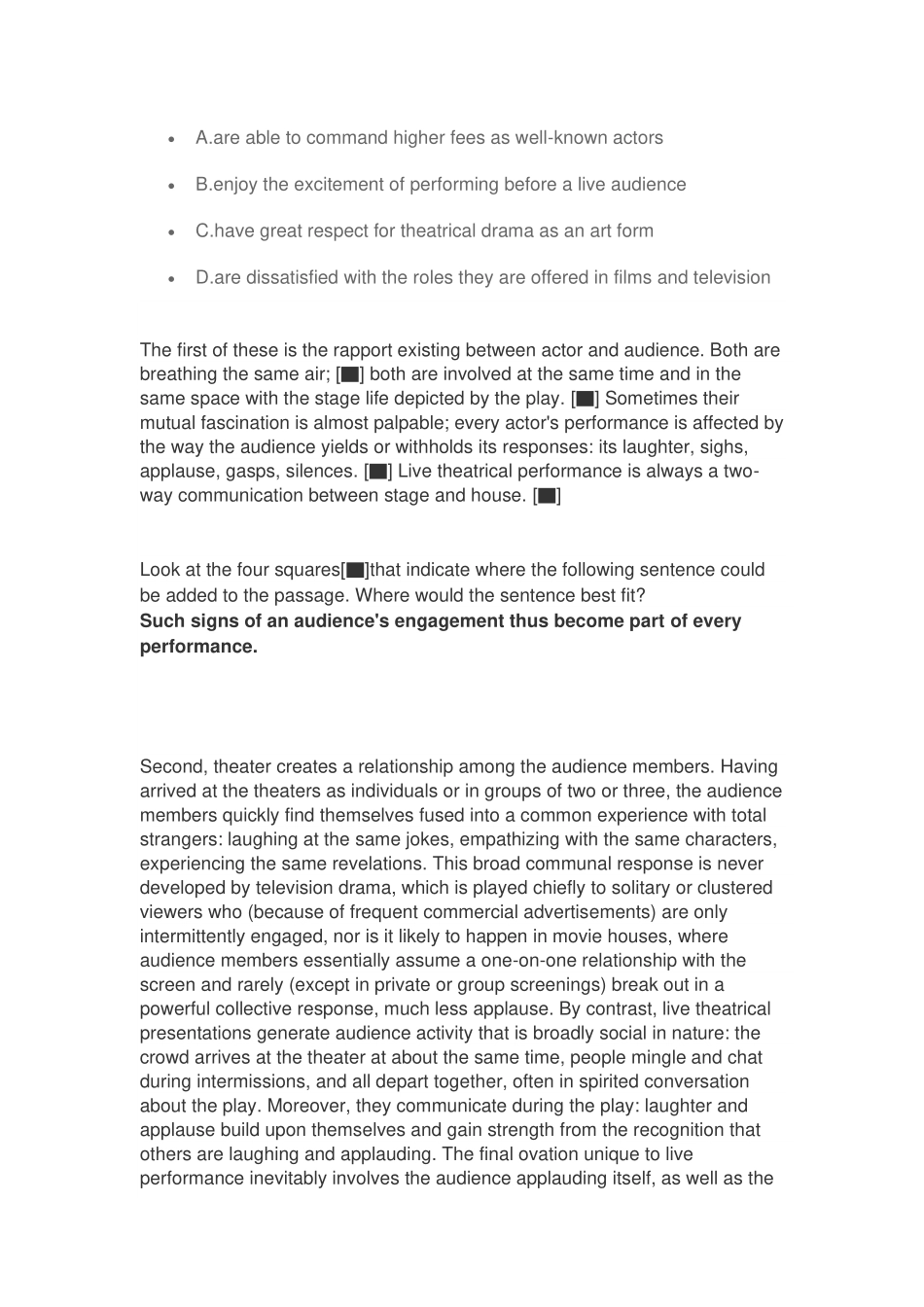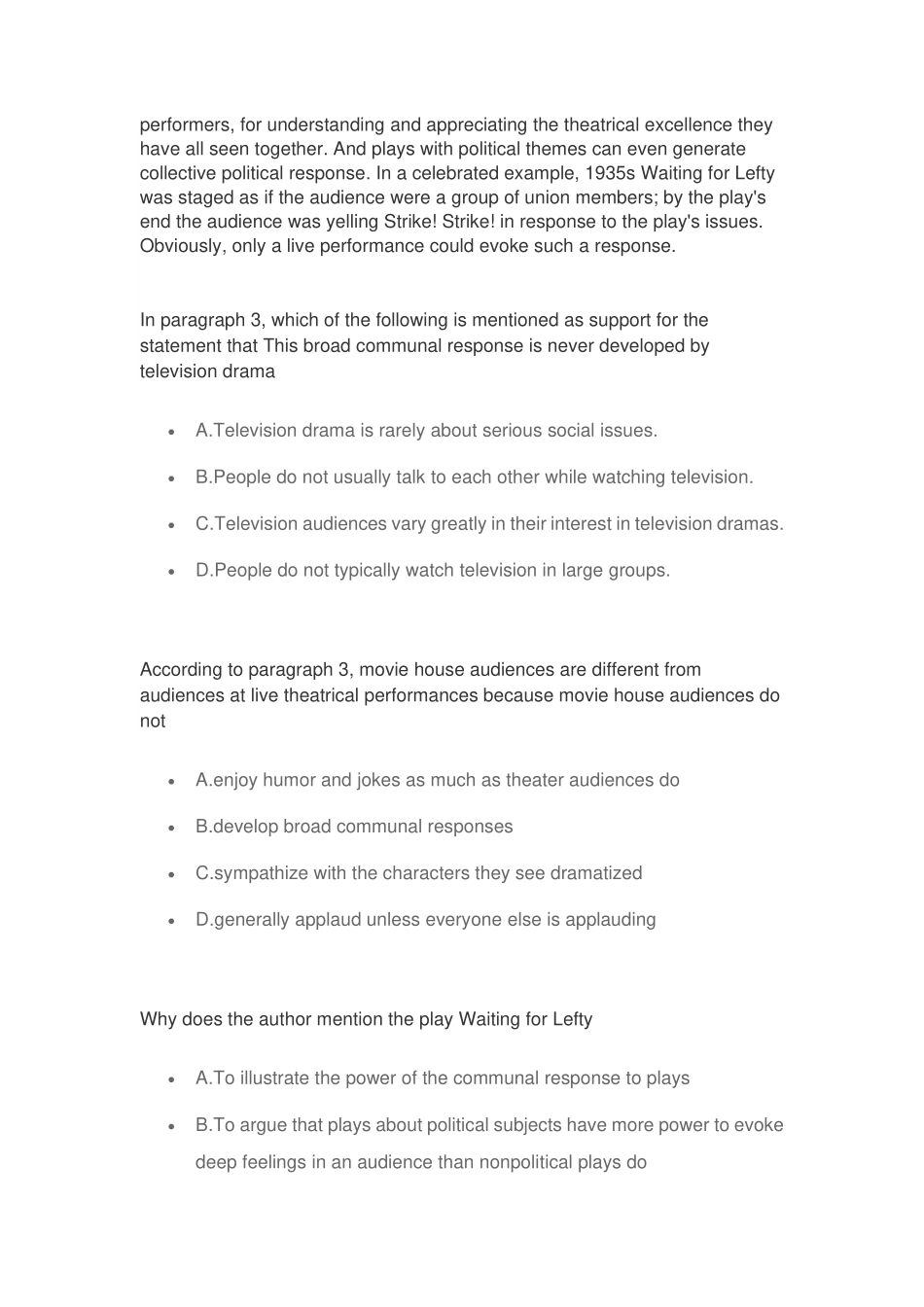Live Performance Unlike video and cinema (although sometimes employing elements of both), the theater is a living, real-time event, with both performers and audience mutually interacting, each aware of the other's immediate presence. This turns out to be an extremely important distinction. Distinguished film stars, particularly those with theater backgrounds (as most have), routinely return to the live dramatic stage despite the substantially greater financial rewards of film work and invariably prefer stage acting because of the immediate audience response theater provides, with its corresponding sensations of excitement and presence. The word “distinction” in the passage is closest in meaning to •A.idea•B.blend•C.definition•D.differenceParagraph 1 makes which of the following points about theater and film •A.Theater audiences tend to be more critical than film audiences.•B.Actors in the theater are usually not as well-known as film actors.•C.Theater companies tend to pay more than film companies do for themost distinguished actors.•D.Audiences respond to actors differently in theater than in film.Paragraph 1 suggests that the reason distinguished film stars return to live theater is that they •A.are able to command higher fees as well-known actors•B.enjoy the excitement of performing before a live audience•C.have great respect for theatrical drama as an art form•D.are dissatisfied with the roles they are offered in films and televisionThe first of these is the rapport existing between actor and audience. Both are breathing the same air; [▇] both are involved at the same time and in the same space with the stage life depicted by the play. [▇] Sometimes their mutual fascination is almost palpable; every actor's performance is affected by the way the audience yields or withholds its responses: its laughter, sighs, applause, gasps, silences. [▇] Live theatrical performance is always a two-way communication between stage and house. [▇] Look at the four squares[▇]that indicate where the following sentence could be added to the passage. Where would the sentence best fit? Such signs of an audience's engagement thus become part of every performance. Second, theater creates a relationship among the audience members. Having arrived at the theaters as individuals or in groups of two or three, the audience members quickly find themselves fused into a common experience with total strangers: laughing at the same jokes, empathizing with the same characters, experiencing the same revelations. This broad communal response is never developed by television drama, which is played chiefly to solitary or clustered viewers who (because of frequent commercial advertisements) are only intermittently engaged, nor is it likely to happen in movie houses, where audience members essentially assume a one-on-one relationship with the screen and rarely (except in ...


